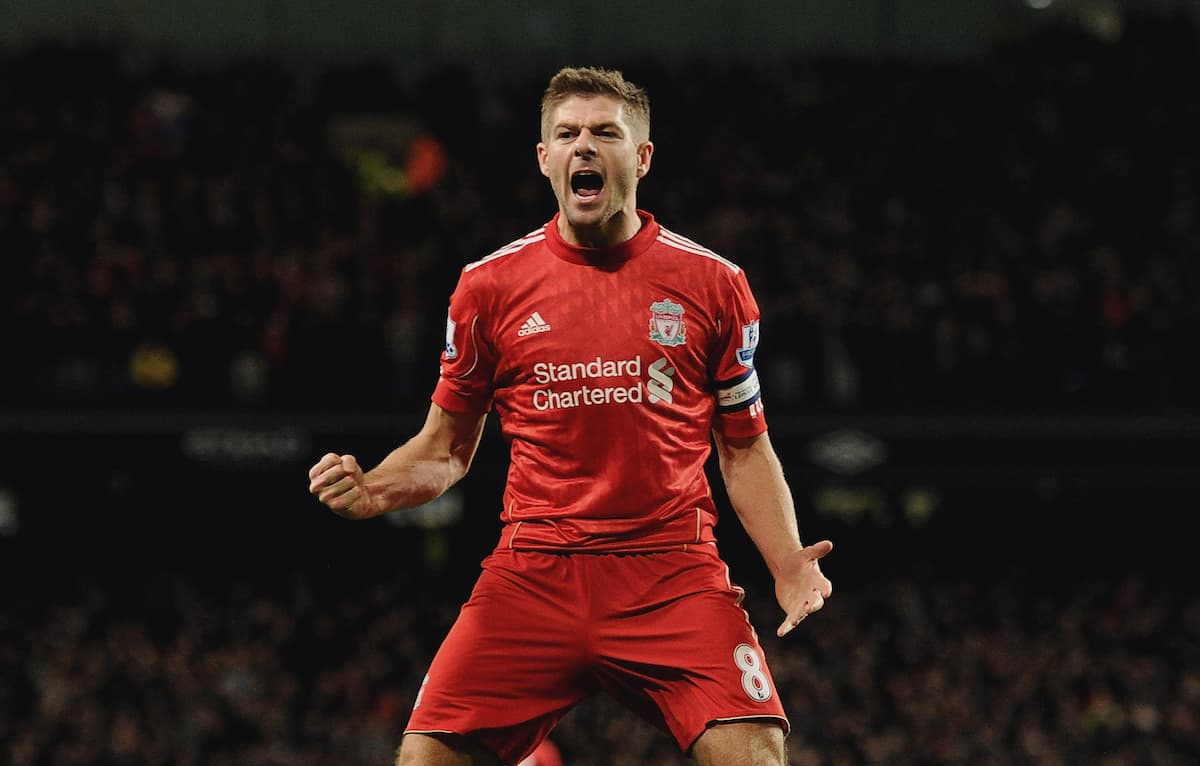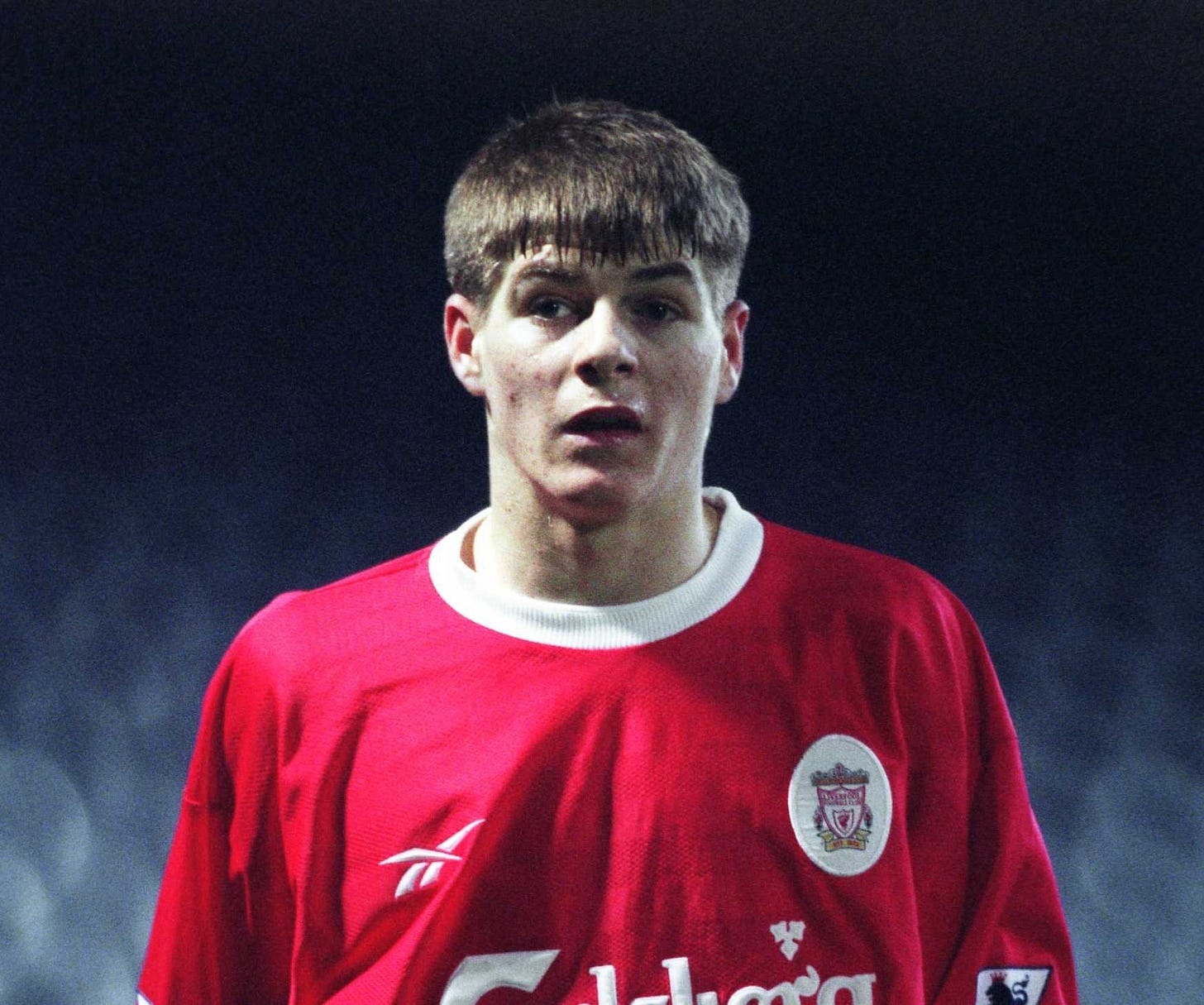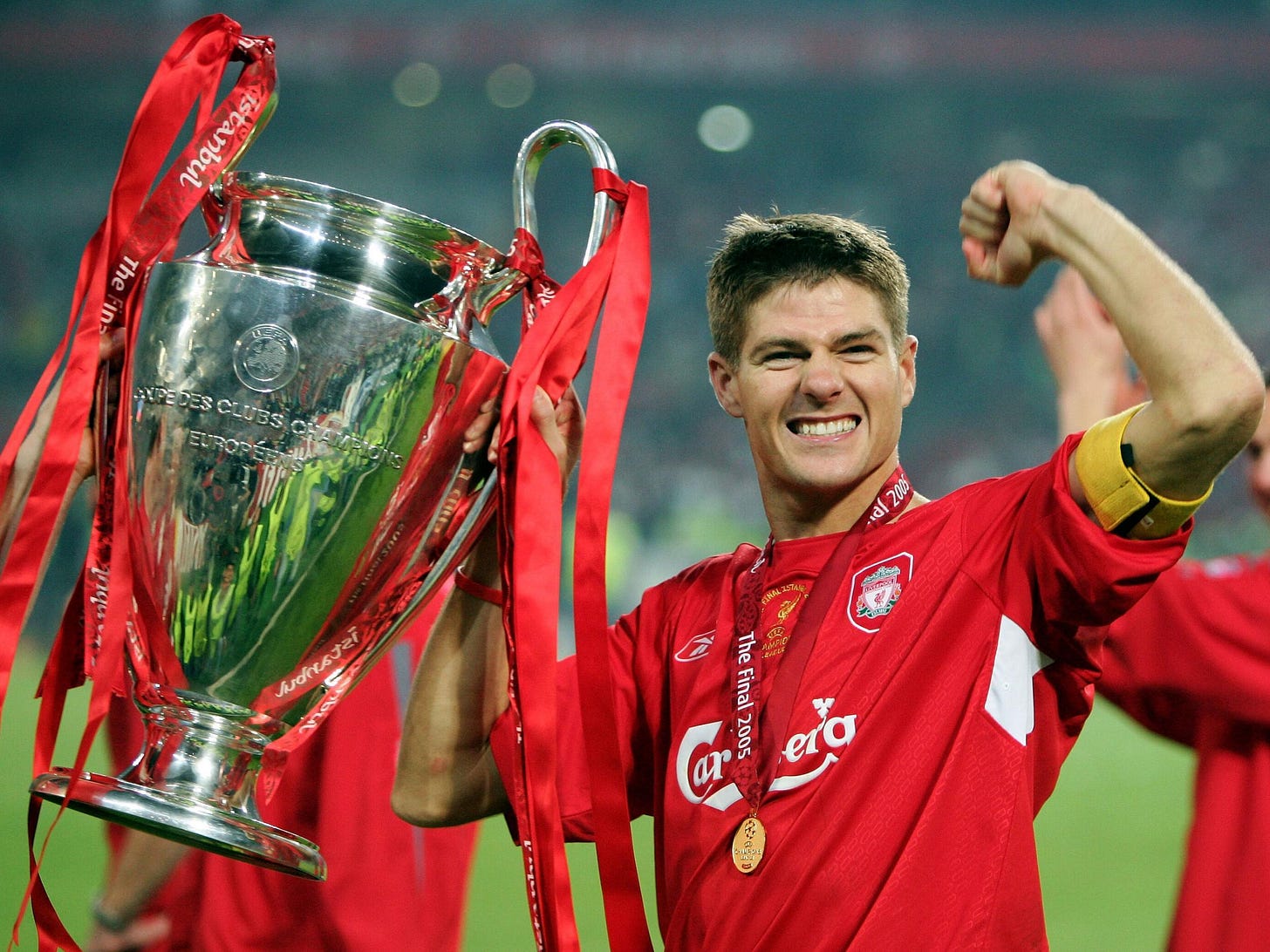Steven Gerrard: The Weight, the Glory, and the Fire That Never Left
Reflection, raw honesty, and rumours of a comeback. Gerrard’s story deserves a closer look.
International breaks offer something football rarely allows. Time. Time to stop, to think, and to look properly at the figures who usually pass in flashes. This week, Steven Gerrard stepped back into the conversation in a way that feels impossible to ignore.
First, there was the interview with Rio Ferdinand. Not staged or sanitised, but raw. Gerrard spoke about pressure, regret, leadership, and loss. He opened up on his slip against Chelsea, the chaos of England duty, the weight of carrying Liverpool, and the loneliness that came with it all. These were not headlines, they were confessions. Calm, measured, and honest.
Then came the news from Glasgow. Gerrard is now expected to return to Rangers as manager. Talks have taken place, with more planned. The club is broken again, and the man who once put it back together is top of the list to try again. Whether that happens or not, the fact it is being seriously considered says everything about how Gerrard is still viewed, even now.
Put those two moments side by side and you get something rare. A reason to pause and take stock of what Gerrard has been, what he still might become, and what his story really says when you strip away the noise.
This piece does exactly that. It looks at his Liverpool career not through worship or criticism, but through impact. It breaks down his leadership, his defining games, and the moments that shaped his legacy. It revisits the weight he carried, the one prize that escaped him, and his honest reckoning with England’s many failures. Finally, it looks forward, asking what a return to Rangers would really mean at this stage in his life and career.
This is not a tribute. It is a clear-eyed look at a man who spent two decades in the middle of the storm, and might just be ready to step back into it.
Let’s begin.
The Reluctant General: How Gerrard Became Liverpool’s Greatest Captain
There was never a speech. No rallying cry, no Hollywood crescendo to lift the dressing room before a European night. Steven Gerrard never needed one. His influence lived in the way he played. A clenched jaw, a ferocious stride, a right foot that could break the sound barrier and deflate a stadium in equal measure. When the armband came, he wore it as a duty rather than a crown.
He did not set out to be Liverpool captain. In fact, the idea might have unsettled him early on. As a teenager stepping into a dressing room of hardened men and Scouse icons, Gerrard admits now that he did not feel like a man himself. Surrounded by the likes of Robbie Fowler, Jamie Redknapp and Jamie Carragher, he was still the apprentice who cleaned boots and kept his eyes down. But in the silence of those early years, a singular mindset was forming. A mindset that quietly told him: I am coming for you all.
Rise of a reluctant leader
At 23, Gerrard was handed the captaincy by Gérard Houllier, with Phil Thompson at his side. The conversation was short. The impact was not. Gerrard’s appointment came not through experience or seniority, but from the force of his football. His style was not built for subtlety. It was energy wrapped in pressure, laced with defiance. He led by showing others what was possible. The armband, in that sense, only caught up with what he already was.
He speaks now about the feeling of being given the captaincy. Outer-body. Hairs standing. A weight and a gift, both at once. But he did not feel prepared. He was not yet a voice in the room. He would become one, eventually, but it was never where his strength lay. His leadership was physical. He set standards by chasing lost causes. He demanded more by covering more ground. That was his language.
In Liverpool’s long line of captains, from Hughes to Souness to Van Dijk, Gerrard’s command stood apart. He was never the chest-puffer or the team-talk merchant. His was the art of doing, not saying. And yet, the dressing room did not just follow him, it began to orbit around him. Even new signings, by their own admission, came to Anfield not to impress the manager first, but to gain Gerrard’s approval. That is not aura by accident. That is presence earned.
Pressure, expectation and survival
What Gerrard inherited was not the Liverpool of Shankly or Paisley. It was a club desperate to relight its flame. He did not walk into a title-winning side, he dragged a fractured one towards relevance. That is what makes his captaincy exceptional. He did not keep the wheel steady on a well-oiled machine. He was the engine, the spark and often the brakes too.
The expectation, however, was relentless. The slip against Chelsea in 2014 became symbolic of that pressure. He does not shy away from it, but he also does not obsess. He owns it in the way only someone who has truly felt loss can. It lives with him, not in him. And in speaking about it, he reminds us that one moment does not define a man who spent two decades fighting for a club that rarely gave him the tools to win it all.
He hated losing. It was not the trophy that obsessed him, but the fear of walking through the streets of Liverpool knowing he had let someone down. It is that fear, not medals, that shaped him. Gerrard’s greatest asset was not talent, although he had that in spades. It was his refusal to wilt. He could have left. He had options. Chelsea and Real Madrid came knocking, with José Mourinho waiting. And he admits it turned his head. But he stayed. Always stayed.
Loyalty is not a quaint relic at a club like Liverpool. It is currency. Gerrard spent all of his.
Power through performance
His best years came not when he was most celebrated, but when he was most free. Between 2005 and 2007, under Rafael Benítez, Gerrard found his groove. Injury-free, tactically sharper and mentally wired into every match, he became unplayable. Later, with Mascherano and Alonso behind him, he operated like a heat-seeking missile just off Fernando Torres. There were few players in Europe who could touch him.
And yet, even in that freedom, his instincts remained grounded in the team’s need. He was not obsessed with goals in the way Lampard was. He did not glide like Scholes. But Gerrard would take over a game by sheer force of will. He did not decorate matches, he dominated them.
He has spoken about his regret over red cards and moments where emotion clouded clarity. That admission matters. Gerrard never pretends to have been flawless. But even those moments of chaos came from care. He was not reckless, he was obsessed. He could not bear to lose control. Sometimes that need boiled over. But more often, it carried the team.
His presence on the pitch created accountability. You did not want to fail next to him. That is a particular kind of leadership. One that cannot be taught.
A legacy without dispute
In this era of trophies as Twitter currency and individual awards as proof of greatness, Gerrard’s legacy is sometimes distorted by what he did not win. But for anyone who watched Liverpool between 2000 and 2015, the reality is obvious. He was the club’s identity in boots. Its shield, its hammer, its mirror.
He won the Champions League in Istanbul, dragging a side that had no business in a final to the greatest comeback in modern football. He won the FA Cup with a goal that stopped time. He scored against every major rival. And he never left.
Today, as Liverpool begins to define its next era under Arne Slot, Gerrard remains the captain others are measured against. Not because of what he said, but because of how he made you feel when he played. He was never comfortable with the spotlight, never hungry for ceremony. But when the club needed him most, he became something more than a player. He became a symbol.
Steven Gerrard may have been reluctant. But he was never uncertain.
He became Liverpool’s greatest captain not by chasing greatness, but by embodying its most demanding standard.
He showed up, every time. And that will always matter more than medals.
Moments and Mayhem: Gerrard’s Defining Games
There are players who glide through eras, their careers defined by elegant consistency. Then there is Steven Gerrard. His career was not built on polish or rhythm, but on impact. Explosive, timely, unforgettable impact. Gerrard’s greatest performances often arrived in the middle of mayhem, at moments when Liverpool needed a jolt of electricity, not just inspiration.
You did not watch him to be entertained. You watched him because he made you feel like anything was possible. He could ignite a dead game, drag a flat team uphill, or smash home the sort of goal that left a stadium speechless and a generation of fans awestruck. These were not just memorable games, they were defining ones. The ones that made Gerrard who he was, and made Liverpool believe again.





